McKinsey recruiters reveal exactly how to nail the interview and case study to land a 6-figure job at the consulting firm
- The latest salaries report from Management Consulted, a consulting careers resource website, showed that McKinsey's hires with MBAs and PhDs make a base salary of $165,000.
- The consulting firm is working to diversify their applicant pool and bring in more hires from non-Ivy League schools.
- Business Insider spoke with two McKinsey recruitment directors on how to nail the interview and score a spot at the company.
- Click here for more BI Prime stories.
Top management consulting firm McKinsey & Company offers some of the highest-paying salaries for recent grads. But it's hard to land a coveted six-figure role at the firm.
According to the latest salaries report from Management Consulted , a careers resource website catered to job seekers in the consulting field, McKinsey's MBA and PhD hires make a base salary of $165,000 — and that's not including the $35,000 performance bonus for all employees, and the 50% MBA tuition reimbursement for returning interns.
It's no surprise that management consultants are getting paid six figures from get-go. It's been that way for years. However, the report noted an emerging trend that serves as good news for those who might not have an Ivy League degree : Consulting firms are increasing recruitment from non-target schools — this means they're steering away from relying on Ivy League universities like Harvard for hires. In fact, these companies are holding up to 20% of their recruitment slots for those with non-target backgrounds, according to the report.
McKinsey, for example, hired about 8,000 people out of an applicant pool of 800,000 in 2018. Those employees were recruited from 325 different schools around the world, the company shared.
Business Insider recently spoke with Kerry Casey , McKinsey's director of recruitment in the North American region and Caitlin Storhaug , McKinsey's global director of recruitment marketing and communications.
The two experts shared insights on how to nail an interview with the company.

When it comes to the case exercise: Don't wing it
Every McKinsey interview follows a standardized process that is broken down into two components. Prospective candidates are asked to complete a personal experience interview and a case study exercise.
" It doesn't matter if you're interviewing from San Francisco, New York City, or Shanghai — the interview process is standard," Storhaug said. "There aren't harder or easier countries for you to get in."
Every business school graduate is probably familiar with case studies. Harvard Business School (HBS) developed the case method teaching practice , where students are required to read up to 500 cases during their two-year program. Other MBA schools also adopted this strategy to prepare students for tackling real-world businesses problems.
McKinsey's case interviews, in particular, take about 25 to 30 minutes, and it's an opportunity for candidates to showcase how they approach problem solving and think on their feet, Casey explained. When you're tackling a case exercise, focus on how you would go about solving the client problem and not what you think the recruiters want to see in your responses.
The company provided a case exercise sample and encouraged applicants to practice so that they know the exact format and the type of answers the recruiters look for.
When you're prepping for an interview with the firm, keep those samples in mind, Storhaug added.
Emphasize on your soft skills
One of the most common mistakes that McKinsey's applicants make is that they focus too much on acing case exercises that they fail to really prepare for the personal interview, Casey explained in an email to Business Insider.
"I encourage them to focus also on what are often referred to as soft skills — their aptitude for collaboration, team work, empathy, and leading others," she wrote. "In the long run, those are the qualities that make for success."
Apart from those technical skills, a management consulting job requires collaborative and relationship-building skills. Ultimately, you can't get to the problem-solving component if you don't have a track record of working well with others.
Additionally, Casey added that the personal experience interview doesn't have to be as formal as one might expect. In fact, she wrote that the best interviews are actually conversations rather than strictly planned questions.
This second round is your opportunity to show your attributes beyond your résumé. What are some skills you're hoping to develop with this job? What are your own professional goals in five years?
Casey recommends sharing your own career aspirations. That way, it shows that you know what you want.
Talk about your technical skills if you have them
Technical skills are in high demand, and it's beneficial to have employees who understand how tech can impact clients.
"While not everyone is a tech-focused consultant, of course, we see tech and digital skills being more necessary as we grow and expand into new areas," Casey wrote. "We appreciate candidates who may have expanded their knowledge to include coding, programming and other tech aspects."
Some other top tech skills that employers want are program languages like Python, C++, and JavaScript, Business Insider previously reported.
- Main content
What’s next for remote work: An analysis of 2,000 tasks, 800 jobs, and nine countries
For many workers, COVID-19’s impact has depended greatly on one question: Can I work from home or am I tethered to my workplace? Quarantines, lockdowns, and self-imposed isolation have pushed tens of millions around the world to work from home, accelerating a workplace experiment that had struggled to gain traction before COVID-19 hit.
Now, well into the pandemic, the limitations and the benefits of remote work are clearer. Although many people are returning to the workplace as economies reopen—the majority could not work remotely at all—executives have indicated in surveys that hybrid models of remote work for some employees are here to stay. The virus has broken through cultural and technological barriers that prevented remote work in the past, setting in motion a structural shift in where work takes place, at least for some people.
Now that vaccines are awaiting approval, the question looms: To what extent will remote work persist ? In this article, we assess the possibility for various work activities to be performed remotely. Building on the McKinsey Global Institute’s body of work on automation, AI, and the future of work, we extend our models to consider where work is performed. 1 The future of work in Europe: Automation, workforce transitions, and the future geography of work , McKinsey Global Institute, June 2020; The future of work in America: People and places, today and tomorrow , McKinsey Global Institute, July 2019; Jobs lost, jobs gained: Workforce transitions in a time of automation , McKinsey Global Institute, December 2017. Our analysis finds that the potential for remote work is highly concentrated among highly skilled, highly educated workers in a handful of industries, occupations, and geographies.
More than 20 percent of the workforce could work remotely three to five days a week as effectively as they could if working from an office. If remote work took hold at that level, that would mean three to four times as many people working from home than before the pandemic and would have a profound impact on urban economies, transportation, and consumer spending, among other things.
The virus has broken through cultural and technological barriers that prevented remote work in the past, setting in motion a structural shift in where work takes place, at least for some people.
More than half the workforce, however, has little or no opportunity for remote work. Some of their jobs require collaborating with others or using specialized machinery; other jobs, such as conducting CT scans, must be done on location; and some, such as making deliveries, are performed while out and about. Many of such jobs are low wage and more at risk from broad trends such as automation and digitization. Remote work thus risks accentuating inequalities at a social level.
The potential for remote work is determined by tasks and activities, not occupations
Remote work raises a vast array of issues and challenges for employees and employers. Companies are pondering how best to deliver coaching remotely and how to configure workspaces to enhance employee safety, among a host of other thorny questions raised by COVID-19. For their part, employees are struggling to find the best home-work balance and equip themselves for working and collaborating remotely.
In this article, however, we aim to granularly define the activities and occupations that can be done from home to better understand the future staying power of remote work. We have analyzed the potential for remote work—or work that doesn’t require interpersonal interaction or a physical presence at a specific worksite—in a range of countries, China, France, Germany, India, Japan, Mexico, Spain, the United Kingdom, and the United States. We used MGI’s workforce model based on the Occupational Information Network (O*NET) to analyze more than 2,000 activities in more than 800 occupations and identify which activities and occupations have the greatest potential for remote work.
The potential for remote work depends on the mix of activities undertaken in each occupation and on their physical, spatial, and interpersonal context. We first assessed the theoretical extent to which an activity can be done remotely. This depends on whether a worker needs to be physically present on-site to do a task, interact with others, or use location-specific machinery or equipment.
Many physical or manual activities, as well as those that require use of fixed equipment, cannot be done remotely. These include providing care, operating machinery, using lab equipment, and processing customer transactions in stores. In contrast, activities such as information gathering and processing, communicating with others, teaching and counseling, and coding data can theoretically be done remotely.
Additionally, employers have found during the pandemic that although some tasks can be done remotely in a crisis, they are much more effectively done in person. These activities include coaching, counseling, and providing advice and feedback; building customer and colleague relationships; bringing new employees into a company; negotiating and making critical decisions; teaching and training; and work that benefits from collaboration, such as innovation, problem-solving, and creativity. If onboarding were to be done remotely, for instance, it would require significant rethinking of the activity to produce outcomes similar to those achieved in person.
For instance, while teaching has moved to remote work during the pandemic, parents and teachers alike say that quality has suffered. Similarly, courtrooms have functioned remotely but are unlikely to remain online going forward out of concern for legal rights and equity—some defendants lack adequate connectivity and lawyers, and judges worry about missing nonverbal cues in video conferences.
So we have devised two metrics for remote work potential: the maximum potential, including all activities that theoretically can be performed remotely, and a lower bound for the effective potential for remote work, which excludes activities that have a clear benefit from being done in person (Exhibit 1).
To determine the overall potential for remote work for jobs and sectors, we use the time spent on different activities within occupations. We find that remote work potential is concentrated in a few sectors. Finance and insurance has the highest potential, with three-quarters of time spent on activities that can be done remotely without a loss of productivity. Management, business services, and information technology have the next highest potential, all with more than half of employee time spent on activities that could effectively be done remotely (Exhibit 2). These sectors are characterized by a high share of workers with college degrees or higher.
Remote work potential is higher in advanced economies
The potential for remote work varies across countries, a reflection of their sector, occupation, and activity mix. Business and financial services are a large share of the UK economy, for example, and it has the highest potential for remote work among the countries we examined. Its workforce could theoretically work remotely one-third of the time without a loss of productivity, or almost half the time but with diminished productivity. (Exhibit 3). Other advanced economies are not far behind; their workforces could dedicate 28 to 30 percent of the time to working remotely without losing productivity.
In emerging economies, employment is skewed toward occupations that require physical and manual activities in sectors like agriculture and manufacturing. The potential for time spent on remote work drops to 12 to 26 percent in the emerging economies we assessed. In India, for instance, the workforce could spend just 12 percent of the time working remotely without losing effectiveness. Although India is known globally for its high-tech and financial services industries, the vast majority of its workforce of 464 million is employed in occupations like retail services and agriculture that cannot be done remotely.
Although India is known globally for its high-tech and financial services industries, the vast majority of its workforce of 464 million is employed in occupations like retail services and agriculture that cannot be done remotely.
A hybrid model that combines some remote work with work in an office is possible for occupations with high remote work potential
For most workers, some activities during a typical day lend themselves to remote work, while the rest of their tasks require their on-site physical presence. In the US workforce, we find that just 22 percent of employees can work remotely between three and five days a week without affecting productivity, while only 5 percent could do so in India. In contrast, 61 percent of the workforce in the United States can work no more than a few hours a week remotely or not at all. The remaining 17 percent of the workforce could work remotely partially, between one and three days per week (Exhibit 4).
Consider a floral designer. We estimate that between half and one-quarter of his job can be done remotely. He can take orders by phone or online and contract for delivery through an app, but floral arrangement itself requires being in a shop where the flowers are stored in a refrigerated case and ribbons, moss, vases, and other materials used to create a floral design are at hand. To make a floral designer’s job more remote would require dividing his various tasks among all employees in a flower shop. In contrast, credit analysts, database administrators, and tax preparers, among others, can do virtually all of their work remotely. In general, workers whose jobs require cognitive thinking and problem solving, managing and developing people, and data processing have the greatest potential to work from home. These employees also tend to be among the highest paid.
The ability to work remotely also depends on the need to use specialized equipment. According to our analysis, a chemical technician could work remotely only a quarter of the time because much of her work must be done in a lab housing the equipment she needs. Among healthcare occupations, general practitioners who can use digital technologies to communicate with patients have a much greater potential for remote work than surgeons and x-ray technicians, who need advanced equipment and tools to do their work. Thus, among health professionals overall, the effective remote work potential is just 11 percent.
Even for the same activity, the context in which a job is done matters. Consider the activity “analyzing data or information,” which can be done remotely by a statistician or financial analyst but not by a surveyor. Crime scene analysts and workers who analyze consumer trends both engage in what O*NET describes as “getting, processing, analyzing, documenting and interpreting information,” but the former must go to the location of, say, a murder while the latter can do his work in front of a computer at home. A travel agent can calculate the cost of goods or services from a kitchen table, but a grocery clerk does that from behind a counter in a store.
And then there are jobs that require workers to be on-site or in person more than four days a week. Due to the physical nature of most of their work activities, occupations such as transportation, food services, property maintenance, and agriculture offer little or no opportunity for remote work. Building inspectors must go to a building or construction site. Nursing assistants must work in a healthcare facility. Many jobs declared essential by governments during the pandemic—nursing, building maintenance, and garbage collection, for example—fall into this category of jobs with low remote work potential.
This mixed pattern of remote and physical activities of each occupation helps explain the results of a recent McKinsey survey of 800 corporate executives around the world. Across all sectors, 38 percent of respondents expect their remote employees to work two or more days a week away from the office after the pandemic, compared to 22 percent of respondents surveyed before the pandemic. But just 19 percent of respondents to the most recent survey said they expected employees to work three or more days remotely. This suggests that executives anticipate operating their businesses with a hybrid model of some sort, with employees working remotely and from an office during the workweek. JPMorgan already has a plan for its 60,950 employees to work from home one or two weeks a month or two days a week, depending on the line of business.
Hybrid remote work has important implications for urban economies
Currently, only a small share of the workforce in advanced economies—typically between 5 and 7 percent—regularly works from home. A shift to 15 to 20 percent of workers spending more time at home and less in the office could have profound impacts on urban economies. More people working remotely means fewer people commuting between home and work every day or traveling to different locations for work. This could have significant economic consequences, including on transportation, gasoline and auto sales, restaurants and retail in urban centers, demand for office real estate, and other consumption patterns.
A McKinsey survey of office space managers conducted in May found that after the pandemic, they expect a 36 percent increase in worktime outside their offices, affecting main offices and satellite locations. This means companies will need less office space, and several are already planning to reduce real estate expenses. Moody’s Analytics predicts that the office vacancy rate in the United States will climb to 19.4 percent, compared to 16.8 percent at the end of 2019, and rise to 20.2 percent by the end of 2022. A survey of 248 US chief operating officers found that one-third plan to reduce office space in the coming years as leases expire.
The impact of that will reverberate through the restaurants and bars, shops, and services businesses that cater to office workers and will put a dent in some state and local tax revenues. For example, REI plans to sell off its new corporate headquarters before even moving in and instead begin operating from satellite offices. In contrast, Amazon recently signed leases for a total of 900,000 feet of office space in six cities around the United States, citing the lack of spontaneity in virtual teamwork.
As tech companies announced plans for permanent remote work options, the median price of a one-bedroom rental in San Francisco dropped 24.2 percent compared to a year ago, while in New York City, which had roughly 28,000 residents in every square mile at the start of 2020, 15,000 rental apartments were empty in September, the most vacancies in recorded history.
Nor is residential real estate immune from the impact of remote work. As tech companies announced plans for permanent remote work options, the median price of a one-bedroom rental in San Francisco dropped 24.2 percent compared to a year ago, while in New York City, which had roughly 28,000 residents in every square mile at the start of 2020, 15,000 rental apartments were empty in September, the most vacancies in recorded history. Conversely, bidding wars are breaking out in suburbs and smaller cities as remote workers seek less harried, less expensive lifestyles and homes with a room that can serve as an office or gym—though it is unclear how successful companies will be with workers scattered in far-flung locales.
Remote workers may also shift consumption patterns. Less money spent on transportation, lunch, and wardrobes suitable for the office may be shifted to other uses. Sales of home office equipment, digital tools, and enhanced connectivity gear have boomed.
Whether the shift to remote work translates into spreading prosperity to smaller cities remains to be seen. Previous MGI research in the United States and Europe has shown a trend toward greater geographic concentration of work in megacities like London and New York and high-growth hubs, including Seattle and Amsterdam . These locales have attracted many of the same type of younger, highly educated workers who can best work remotely. It remains to be seen whether the shift to remote work slows that trend, or whether the most vibrant cities remain magnets for such people.
Organizations will have to adjust their practices to capture potential productivity gains from remote work
Is remote work good for productivity? Ultimately, the answer may determine its popularity, especially given the long period of waning labor productivity that preceded the pandemic. So far, there is scant clarity—and widespread contradiction—about the productivity impact. Some 41 percent of employees who responded to a McKinsey consumer survey in May said they were more productive working remotely than in the office. As employees have gained experience working remotely during the pandemic, their confidence in their productivity has grown, with the number of people saying they worked more productively increasing by 45 percent from April to May.
With nine months of experience under their belts, more employers are seeing somewhat better productivity from their remote workers. Interviews with chief executives about remote work elicited a mixed range of opinions. Some express confidence that remote work can continue, while others say they see few positives to remote work.
With nine months of experience under their belts, more employers are seeing somewhat better productivity from their remote workers.
One impediment to productivity may be connectivity. A researcher at Stanford University found that only 65 percent of Americans surveyed said they had fast enough internet service to support viable video calls, and in many parts of the developing world, the connectivity infrastructure is sparse or nonexistent. Developing digital infrastructure will require significant public and private investment.
For women in particular, remote work is a mixed blessing. It boosts flexibility—not needing to be physically co-located with fellow workers enables independent work and more flexible hours—as well as productivity, with less time wasted commuting. Yet remote work also may increase gender disparity in the workplace, exacerbating the regressive effects of COVID-19. The female workforce in many economies is more highly concentrated in occupational clusters like healthcare, food services, and customer service that have relatively low potential for remote work. Previous MGI research on gender parity found that jobs held by women are 19 percent more at risk than jobs held by men simply because women are disproportionately represented in sectors most negatively affected by COVID-19.
Some forms of remote work are likely to persist long after COVID-19 is conquered. This will require many shifts, such as investment in digital infrastructure, freeing up office space, and the structural transformation of cities, food services, commercial real estate, and retail. It also risks accentuating inequalities and creating new psychological and emotional stresses among employees, including from isolation. For most companies, having employees work outside the office will require reinventing many processes and policies. How long before someone invents the virtual watercooler?

The authors wish to thank Olivia Robinson, Gurneet Singh Dandona, and Alok Singh for their contributions to this article.
This article was edited by Stephanie Strom, a senior editor at the McKinsey Global Institute.
Explore a career with us
Related articles.

What 800 executives envision for the postpandemic workforce

Ten things to know about gender equality
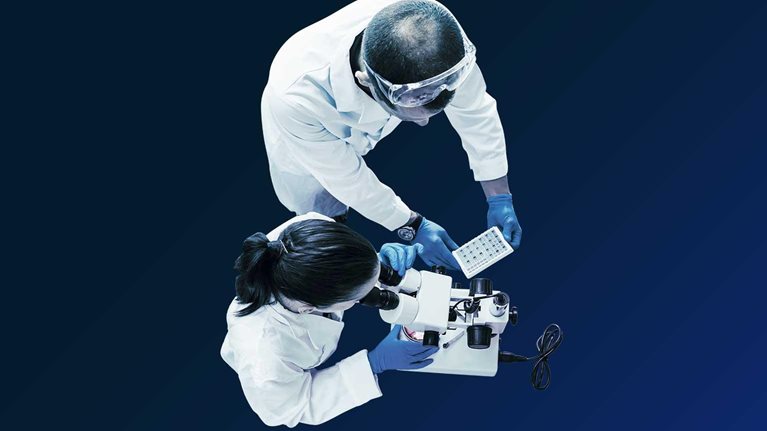
The future of work in America: People and places, today and tomorrow
A Comprehensive Guide to McKinsey Case Interview Preparation
Looking to ace your McKinsey case interview? Our comprehensive guide has got you covered! From understanding the interview process to mastering case frameworks, we provide expert tips and strategies to help you prepare and succeed.
Posted June 8, 2023

Featuring Ben L.
Mastering the Case: Frameworks & Structuring
Wednesday, april 17.
6:00 PM UTC · 60 minutes
Table of Contents
Preparing for a McKinsey case interview can be a daunting task, especially if you’re not sure where to start. As one of the most prestigious consulting firms in the world, McKinsey & Company is known for its rigorous interview process, which involves a unique problem-solving approach and an emphasis on communication skills. In this comprehensive guide, we’ll take you through all the steps you need to take to prepare for the McKinsey case interview and give you the best chance of success.
Understanding the McKinsey Case Interview Process
The McKinsey case interview is a simulation of a real-world business problem. The interviewer will present you with a hypothetical scenario based on a real-life company, and ask you to analyze the situation, identify the key issues, and provide a recommendation for how the company should proceed. The objective of the case interview is to test your analytical and problem-solving skills, as well as your ability to communicate your ideas in a clear and concise manner.
It is important to note that the McKinsey case interview is not just about getting the right answer. The interviewer is also evaluating your thought process, creativity, and ability to think on your feet. Therefore, it is important to approach the case interview with an open mind and be willing to explore different solutions and perspectives.
One way to prepare for the McKinsey case interview is to practice with case studies. There are many resources available online, including sample cases and practice questions. It is also helpful to work with a partner or mentor who can provide feedback on your approach and communication skills.
Key Skills Required for a Successful McKinsey Case Interview
To succeed in a McKinsey case interview, you need to possess several key skills. First and foremost, you need to be able to think critically and strategically. You must also be able to communicate your ideas in a clear and concise manner, and be comfortable with numbers and data analysis. Additionally, you need to demonstrate the ability to manage your time effectively, remain calm under pressure, and work collaboratively with others.
Another important skill to have for a successful McKinsey case interview is the ability to ask insightful questions. You should be able to identify the key issues and ask relevant questions that will help you understand the problem at hand. This will also demonstrate your curiosity and eagerness to learn.
Lastly, it is important to have a strong business acumen. You should have a good understanding of the industry and market trends, as well as the company's goals and objectives. This will help you provide relevant and practical solutions to the case problem, and showcase your ability to think like a business leader.
For more tips on how to maximize your chances of landing a management consulting position that's right for you, check out these resources:
- Mastering Case Interview Math: Essential Formulas
- Writing a Winning Consulting Cover Letter: A Comprehensive Guide
- Understanding the Salary Structure in Management Consulting
Mastering Consulting Case Frameworks: A Comprehensive Guide
- Five Tips for Breaking Into Management Consulting
Free trial!

From 92 top coaches
Access a library of videos, templates, and examples curated by Leland's top coaches.
Example resumes.

Example Cases

Casing Drills
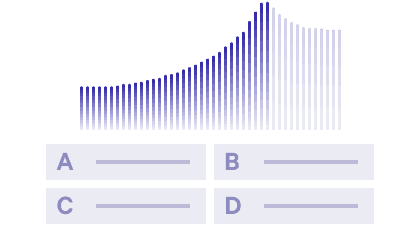
Mock Interviews

Tips to Ace McKinsey Case Interview
Preparation is key when it comes to acing a McKinsey case interview. Here are some tips to help you succeed:
- Be well-prepared: Research the firm and the industry you are interested in and practice case studies.
- Be analytical: Use a structured framework to analyze the case and identify the key issues.
- Be confident: Always articulate your thoughts and recommendations with clarity and confidence.
- Be concise: Communication is key, so make sure you get to the point and avoid unnecessary information.
- Practice: Mock interviews are essential to improving your skills and getting used to the interview process.
It's also important to remember that the interviewer is not looking for a perfect solution, but rather how you approach the problem and your ability to think critically. Don't be afraid to ask clarifying questions and take time to gather your thoughts before answering. Additionally, be sure to listen actively to the interviewer and incorporate their feedback into your analysis. By following these tips and staying calm under pressure, you can increase your chances of acing the McKinsey case interview.
The Importance of Researching the Company and Industry before the Interview
Before the interview, it’s crucial to research the company and the industry you are interested in. Knowing the company's history, values, and key clients will help you demonstrate your interest and knowledge during the interview. Additionally, understanding the industry trends, challenges, and opportunities can help you come up with more insightful and strategic recommendations.
Another reason why researching the company and industry is important is that it can help you tailor your responses to the interviewer's questions. By understanding the company's goals and challenges, you can highlight your skills and experiences that align with their needs. Moreover, knowing the industry trends and best practices can help you provide relevant examples and insights that showcase your expertise.
Furthermore, researching the company and industry can also help you assess whether the company is a good fit for you. By learning about the company culture, work environment, and values, you can determine whether they align with your own goals and values. This can help you make an informed decision about whether to accept a job offer if one is extended to you.
How to Structure Your Responses in a McKinsey Case Interview
Structuring your responses is essential to communicating your ideas effectively and showing your analytical skills. Use a structured framework such as MECE (Mutually Exclusive and Collectively Exhaustive) to break down the problem and identify the key issues. Once you have identified the issues, prioritize them and develop recommendations based on your analysis. Make sure to articulate your thought process clearly and concisely throughout the exercise.
It is also important to actively listen to the interviewer and ask clarifying questions to ensure you fully understand the problem at hand. This will help you tailor your response to the specific needs of the client and demonstrate your ability to work collaboratively. Additionally, be prepared to adapt your approach if new information is presented during the interview. Flexibility and agility are highly valued qualities in a consultant and can set you apart from other candidates.
Common Mistakes to Avoid in a McKinsey Case Interview
Common mistakes that applicants make in McKinsey case interviews include:
- Jumping to conclusions without sufficient analysis.
- Overcomplicating the problem.
- Providing vague or incomplete recommendations.
- Getting frazzled under pressure.
Avoiding these pitfalls can help you stand out and demonstrate your problem-solving skills effectively.
Another common mistake that applicants make in McKinsey case interviews is not asking enough clarifying questions. It is important to fully understand the problem and the context before jumping into analysis and recommendations. Additionally, not asking questions can make it seem like you are not engaged or interested in the problem at hand. Therefore, make sure to ask thoughtful and relevant questions throughout the interview to demonstrate your curiosity and analytical skills.
Sample McKinsey Case Interview Questions and Answers
Sample McKinsey case interview questions can range from market sizing to competitive strategies. Here are some examples:
- How would you estimate the size of the global coffee market?
- How would you advise a chain of retail stores facing declining sales?
- How would you help a software company develop a new product?
- How would you advise a hospital facing budget constraints?
Answers to these questions require a structured approach, including the identification of key issues, relevant analysis, and well-supported recommendations.
It is important to note that McKinsey case interviews are not just about finding the right answer, but also about demonstrating strong problem-solving skills and the ability to communicate effectively. Candidates are expected to ask clarifying questions, think critically, and present their ideas in a clear and concise manner.
In addition to the case interview questions, candidates may also be asked behavioral questions to assess their fit with the company culture and values. These questions may focus on leadership, teamwork, and communication skills, among others.
The Role of Creativity in Solving McKinsey Case Study Problems
Creativity is just as important as analytical skills in the McKinsey case interview. You must demonstrate creativity in identifying potential solutions and making recommendations that are both innovative and realistic. Creative problem-solvers are valued in the consulting industry, as they can offer fresh ideas and perspectives that can benefit their clients.
How to Develop a Personalized Strategy for McKinsey Case Interviews
Developing a personalized strategy for McKinsey case interviews is crucial to success. Understand your strengths and weaknesses and focus on improving your weaknesses. You should also participate in mock interviews and receive feedback from others to help you improve your performance. Consider working with a coach or mentor who can provide you with additional guidance and advice.
The Benefits of Mock Interviews in Preparing for a McKinsey Case Interview
Mock interviews are an essential tool in preparing for a McKinsey case interview. Mock interviews help you get used to the format of the interview, identify your strengths and weaknesses, and receive feedback on your performance. Practicing with different problems and cases also helps you become more comfortable with the analytical process and develop creative problem-solving skills.
The Importance of Confidence and Communication Skills in a McKinsey Case Interview
Confidence and communication skills are equally essential in a McKinsey case interview as analytical skills. You must be able to articulate your ideas in a clear and concise manner and demonstrate your confidence in your recommendations. Additionally, being comfortable with numbers and data analysis is essential in communicating your insights effectively. Practice your communication skills and prepare accordingly to increase your confidence and show your potential.
How to Follow Up After a Successful McKinsey Case Interview
Following up after a successful McKinsey case interview is an essential step that many candidates overlook. Send a thank-you note or email expressing your appreciation for the opportunity, and reiterate your interest in the position. Keep the communication positive, professional, and timely. This follow-up can help set you apart from other candidates and demonstrate your attention to detail and enthusiasm for the company.
Resources for Further Practice and Preparation for a McKinsey Case Interview
There are plenty of resources available online and offline to help you prepare for a McKinsey case interview. Some of the popular ones include:
- Case in Point: Complete Case Interview Preparation by Marc P. Cosentino
- McKinsey & Company interview preparation resources
- Victor Cheng’s Case Interview Videos
Make use of these resources, attend networking events, and seek out advice from professionals in the consulting industry to help you prepare for the interview.
Preparing for a McKinsey case interview can be challenging, but with practice and preparation, you can increase your chances of success. Keep in mind the key skills required for success and practice your communication skills, and make use of the resources available to you. Follow the tips mentioned in this guide, and put in the effort required to succeed. With hard work and dedication, you can ace your McKinsey case interview and start your career in consulting.
Browse hundreds of expert coaches
Leland coaches have helped thousands of people achieve their goals. A dedicated mentor can make all the difference.
Browse Related Articles
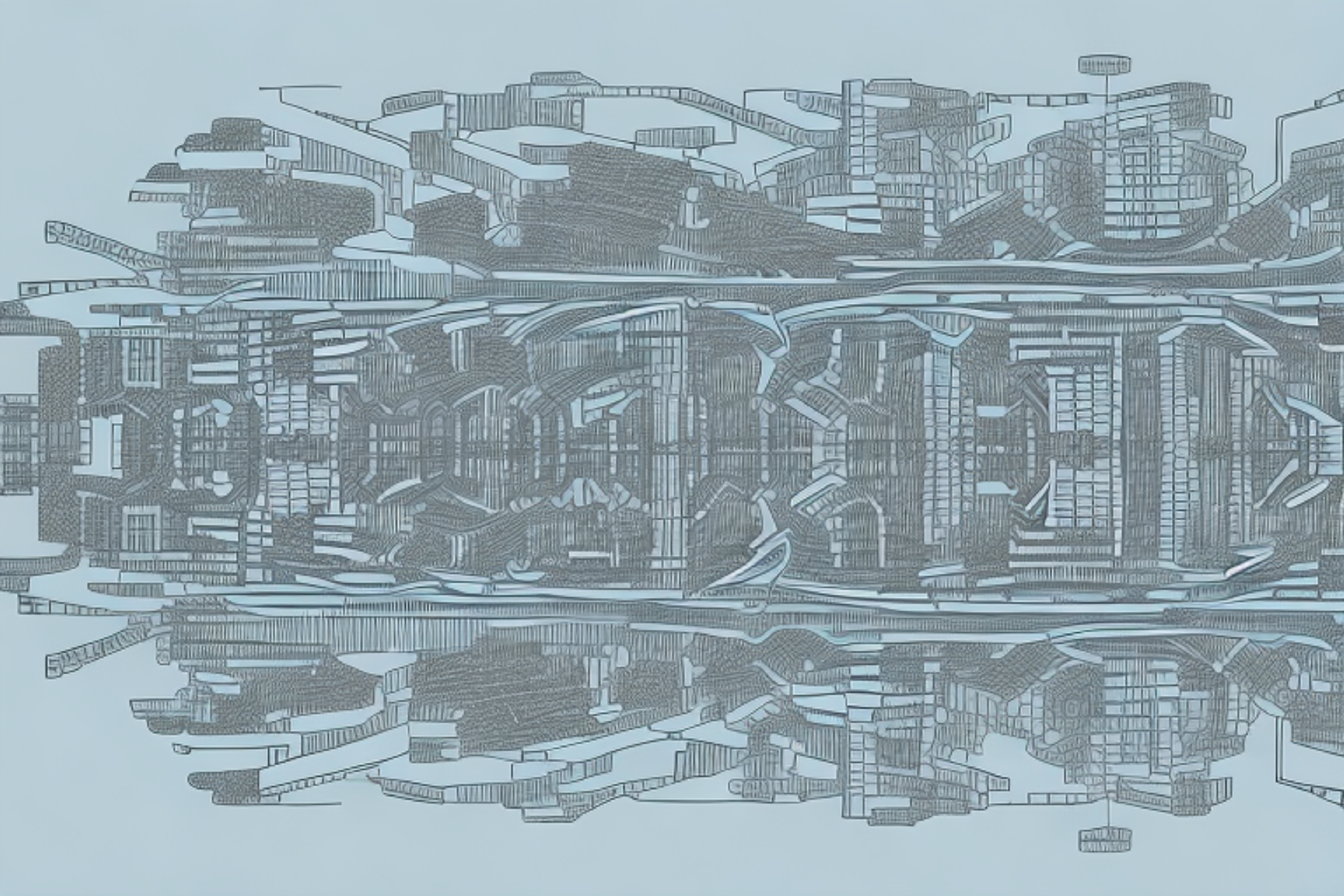
May 18, 2023
McKinsey Bonus Structure: Understanding the Reward System
Discover how the McKinsey bonus structure works and gain a deeper understanding of the reward system in this comprehensive guide.

June 12, 2023
Bain Case Interviews: A Comprehensive Preparation Guide
Are you preparing for a Bain case interview? Look no further! Our comprehensive guide covers everything you need to know to ace your interview and land your dream job at Bain.

March 12, 2024
The Ultimate Guide to the Consulting Case Interview – With Examples
This guide, written by a former McKinsey consultant and Wharton MBA, breaks down the management consulting case interview into comprehensible parts with relevant, realistic examples at every turn.

May 11, 2023
How to Prepare for McKinsey Management Consulting Behavioral Interviews?
If you're preparing for a McKinsey management consulting behavioral interview, this article is a must-read.
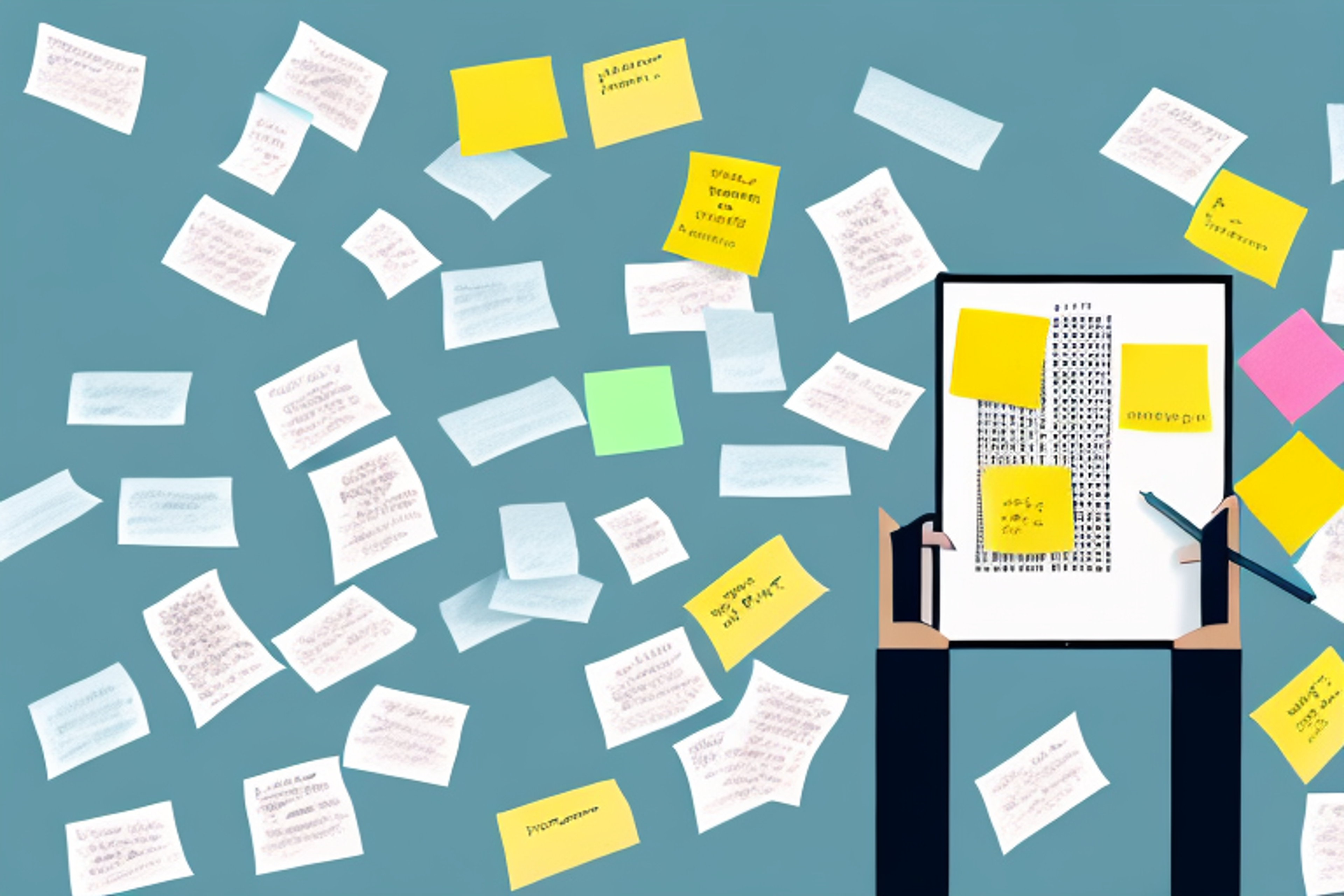
How to Prepare for McKinsey Management Consulting Networking Calls?
Learn how to ace your McKinsey management consulting networking calls with these expert tips and strategies.
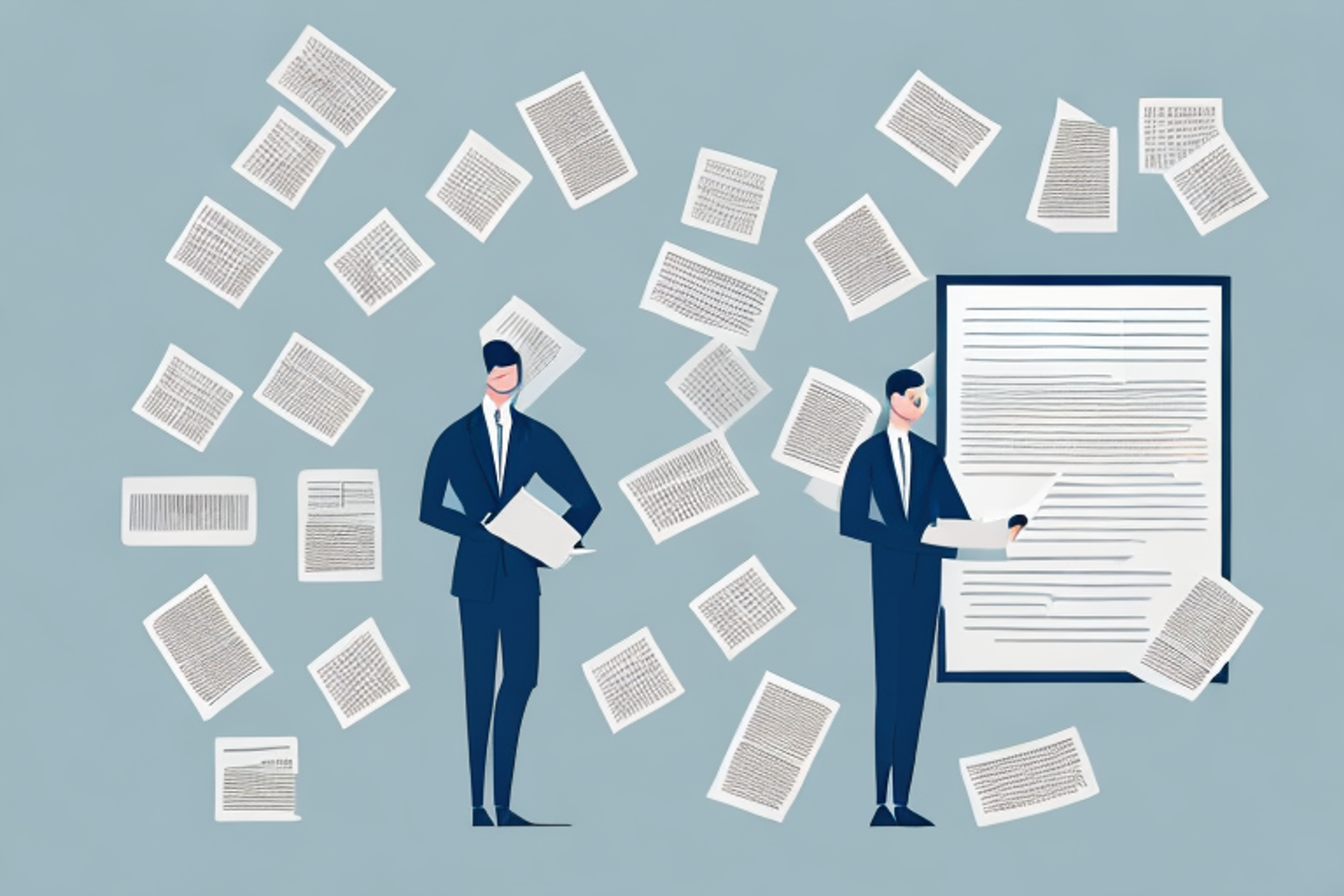
July 31, 2023
Looking to excel in consulting case interviews? Our comprehensive guide to mastering consulting case frameworks is here to help! Learn the essential skills and strategies needed to ace your next case interview and land your dream consulting job.

IQVIA Case Study Interview: A Comprehensive Preparation Guide
If you're preparing for an IQVIA case study interview, this comprehensive guide is a must-read.

McKinsey First Year Salary: What to Expect and How to Negotiate
Are you curious about what your first year salary at McKinsey might be? This article provides insights on what to expect and tips on how to negotiate your salary.

Mckinsey Consulting Salary: A Comprehensive Overview
Discover everything you need to know about McKinsey consulting salaries in this comprehensive overview.

Business Analyst McKinsey: A Comprehensive Career Guide
Discover the ins and outs of a career as a Business Analyst at McKinsey with our comprehensive guide.
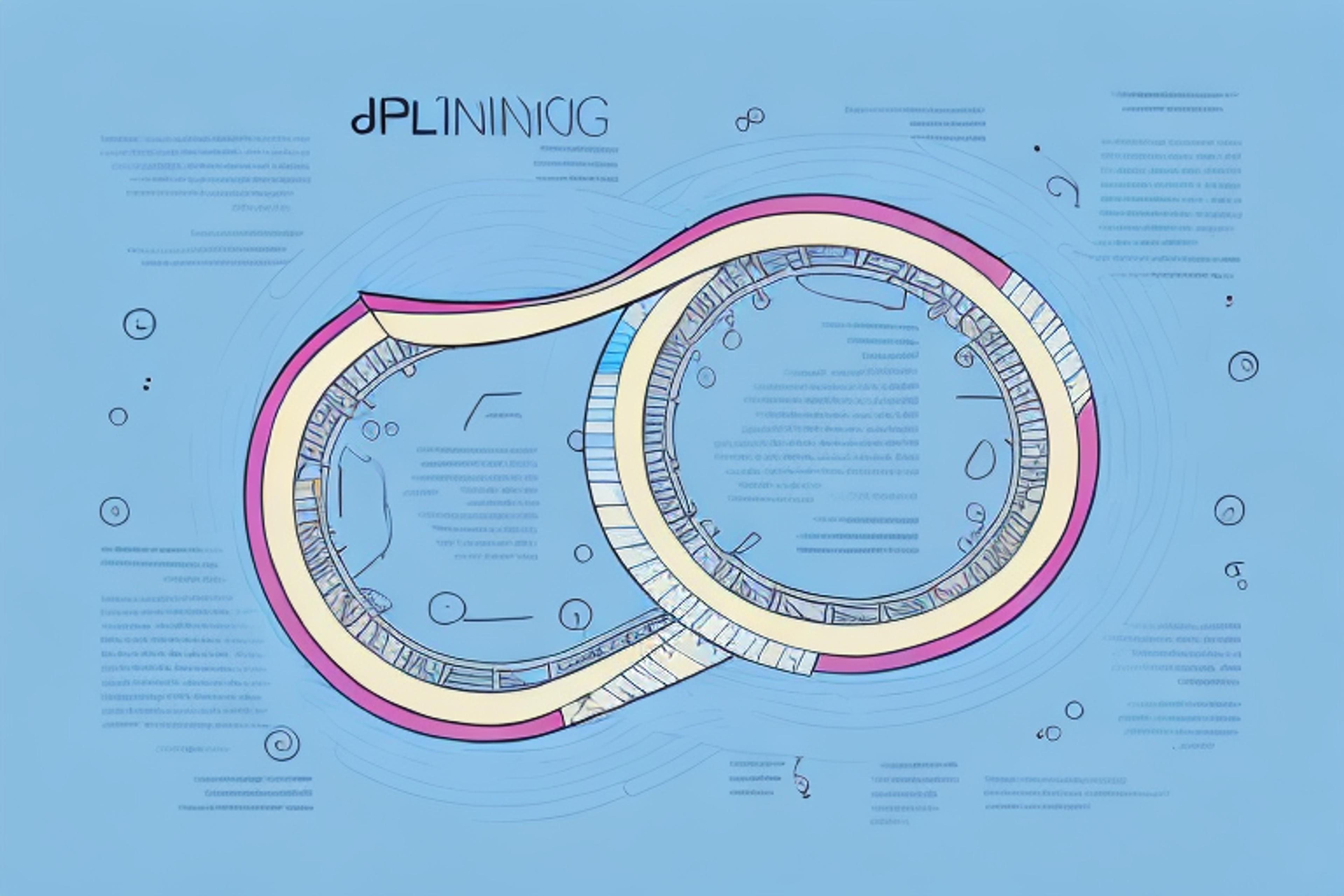
IQVIA Interview Process: A Comprehensive Guide for Success
Looking to ace your IQVIA interview? Our comprehensive guide covers everything you need to know to succeed, from the application process to common interview questions and tips for impressing your interviewer.

Navigating the Shift from Energy Sector to Management Consulting: An Insider's Guide
Are you considering a career shift from the energy sector to management consulting? Look no further than our insider's guide, filled with tips and insights to help you navigate this exciting transition.
McKinsey Case Interview & PEI - 6 Things You Need to Know
- Last Updated January, 2024
Rebecca Smith-Allen
Former McKinsey Engagement Manager
If you’re interested in a career in management consulting, McKinsey & Company is probably on your list of firms to apply to. It’s the oldest consulting firm, established in 1926 by James McKinsey, a University of Chicago professor and expert in management accounting.
Today, the firm employs 30 thousand professionals working in 130 cities around the world. McKinsey regularly ranks at the top of lists of strategy consulting firms and is hired by businesses, governments, and non-profit organizations to help solve their toughest problems.
It’s difficult to get a job offer from McKinsey.
Like its top management consulting competitors, Bain and BCG, McKinsey typically hires only 1% of candidates who apply. In particular, McKinsey case interviews are tough to crack…but not impossible.
If you’re interested in trying to beat the odds, this article will tell you what you need to know to succeed. We’ll tell you:
What’s different about McKinsey,
6 things candidates recruiting with McKinsey should know,
We’ll provide a mock McKinsey case interview video, and
Provide tips on acing your McKinsey interview.
Let’s get started!

What’s Different About McKinsey? 6 Things Candidates Should Know
1. consultants are hired for either the generalist track or a specialist track.
Generalists at McKinsey are consultants who could be staffed to help clients in any industry and dealing with any type of business problem. Specialists are consultants with a particular area of expertise.
Areas of specialization within McKinsey include digital and advanced analytics, marketing and sales, business turn around, operations, software development and design, and implementation.
2. Consultants Work On-Site At The Client 4 Days A Week.
Most consultants travel a lot and at McKinsey, this is definitely the case. Consider whether regular plane flights and hotel stays are right for you.
3. McKinsey Cases Are Interviewer-Led Rather Than Candidate-Led.
Candidates are still expected to identify key issues to be addressed to solve the business problem presented by their interviewer and outline a plan to explore these issues. After they do that, their McKinsey interviewer is likely to tell the candidate which issue they’d like to discuss first. Other management consulting firms, like Bain and BCG typically let candidates steer their case interview.
4. Interviewers Assess Fit As Part Of Every Interview With Personal Experience Interview (PEI) Questions.
While all strategy firms ask candidates Consulting Behavioral Interview Questions to assess their fit with their firm, many have one interviewer focus entirely on fit while others focus entirely on a case study question.
McKinsey interviewers split their interview time between the case and PEI in every interview.
5. McKinsey Looks For Personal Impact And Entrepreneurial Drive In Candidates.
This is in addition to the structured problem solving and leadership skills that McKinsey, as well as other top consulting firms, look for in candidates.
6. Mckinsey Recruiting Uses Solve - a Gamified Digital Assessment.
McKinsey’s Solve Game was launched to broaden the firm’s reach to find the best talent regardless of geography as well as provide deeper insight into candidates’ problem-solving skills.
Keep reading for a deeper dive into these topics.
Generalist versus Specialist Track Roles
When the management consulting industry was first founded, simply having an MBA and expertise in solving business problems was enough to set a consultant apart. Consultants hired by McKinsey could expect to be staffed on a case in any industry and solving any type of problem.
To help clients solve these types of business problems effectively, McKinsey hires people with years of experience in functional specialties. These include advanced analytics, marketing and sales, business turn around, operations, software development and design, and implementation.
Specialists work alongside generalists on projects to leverage their functional expertise across the work of the team. The specialist practices are growing faster than generalist roles and get fewer applications, so if you have the right kind of expertise and apply to the practice, you may have a better chance of landing an interview.
How McKinsey Interviews Differ from Bain and BC
There are two main ways that McKinsey’s interviews differ from those of other top management consulting firms. McKinsey uses interviewer-led case interviews while other firms use candidate-led case interviews.
In the “fit” portion of the interview, McKinsey uses the personal experience interview and each interviewer you meet with in all rounds will assess fit.
Interviewer-led Cases
At the start of any McKinsey case study, candidates need to go through 4 phases to solve the business problem the interviewer has given them in a structured manner: the opening, structure, analysis, and closing.
In a candidate-led case interview, candidates will pick which part of the problem they want to dive into first and proceed with it. In McKinsey’s interviewer-led cases, the interviewer will pick the first part of the business problem they want the candidate to address.
Is the interviewer-led case interview easier or harder than the candidate-led one?
If you’ve structured the business problem well, breaking the problem down into the MECE issues that require further analysis, it should not matter who picks which aspect of the problem to address first. What is helpful is knowing what to expect in your case interview so that you don’t start down one path just to be redirected by your McKinsey interviewer. You don’t want anything to throw you in the middle of your case!
For more information on these 4 phases of answering a case interview question, see Case Interview Prep .
Behavioral Interview Questions - The McKinsey PEI
As mentioned above, fit or personal experience interview (PEI) questions are part of every McKinsey interview.
How else is the PEI different?
While other top management consulting firms focus on bringing the best creative problem-solving to their clients’ problems (BCG is notable here), McKinsey is interested in candidates’ personal impact and entrepreneurial spirit.
McKinsey interviewers look for these characteristics in answers to PEI questions. Because of this, it’s good to have some insight into why the firm thinks these characteristics are important.
Personal Impact
McKinsey says this about personal impact on its career website:
McKinsey does not want to create PowerPoint presentations with elegant solutions that sit on an executive’s shelf, not implemented.
Personal impact means that McKinsey consultants work shoulder-to-shoulder, on-site with client executives, developing solutions that don’t just solve a business problem in theory but also do it in practice. This can require facing resistance to change in the client’s organization head-on and persuading people to reassess long-held beliefs.
During the PEI, questions like the following will be asked to assess personal impact:
- Tell me about a team you worked on when you needed to change someone’s mind on a topic that was important to them, or
- Tell me about a time when you needed to rely on your communication skills to solve a difficult interpersonal situation.
This belief that personal impact is key to developing an implementable solution is what drives McKinsey consultants to spend 4 days a week on client site.
Entrepreneurial Drive
McKinsey says this about entrepreneurial drive on its career website:
McKinsey doesn’t hire consultants who can only implement solutions they’ve seen in previous businesses. They want people who are willing to try new things, take solutions to new industries or new types of problems.
The McKinsey problem solving approach treats each client problem as unique. Each solution should push thinking about best-practices.
In addition to personal impact and entrepreneurial drive, McKinsey also assesses leadership using the PEI. We won’t address this in detail because this is similar to other consulting firms, but you can find more about how McKinsey assesses leadership in our page on McKinsey PEI Questions.
It also includes What McKinsey Is Looking For and provides a list of 11 Common PEI Questions.
Nail the case & fit interview with strategies from former MBB Interviewers that have helped 89.6% of our clients pass the case interview.
The McKinsey Interview Process - Traditional and Recent Changes
The traditional recruiting process.
For years, McKinsey focused on a group of core schools to find new analyst (undergraduate hires) and associate (MBA hires) candidates.
While the firm now recruits from a broader set of schools as well as more diverse candidates, recruiting at these core schools still starts in much the same way. McKinsey consultants conduct on-campus presentations and coffee chats to talk to potential candidates about what it’s like to work in the management consulting industry and at McKinsey, in particular.
If the firm hosts an event at your campus, you should attend to make personal connections and to find out first-hand if a career at McKinsey is right for you. If there are no events at your school or if you’re already employed, check out the company’s career site for articles and videos that will tell you what it’s like to work at McKinsey and what it takes to get an offer.
Candidates submit their resumes (and optional cover letters) to the firm’s recruiting department via their school’s department of career services and on the firm website. Candidates who are invited to interview typically have their first round interviews on campus.
During first round interviews, candidates meet with 2 interviewers back-to-back. Candidates who pass first round interviews are invited to a McKinsey office for second round interviews.
In second round interviews, candidates meet with 3 interviewers. Unless a candidate’s interviewers are split in their decision, second round interviews are also final round interviews.
In each round of interviews, McKinsey interviewers walk candidates through a business problem and asks a series of McKinsey PEI Questions , aimed at evaluating their potential fit with the organization.
The Recruiting Process for Candidates at Non-core School and Experienced Hires
Candidates from non-core schools submit their resumes (and optional cover letters) directly to the recruiting department of the 3 offices they’d like to work in.
If they are invited to interview, candidates who live relatively close to a McKinsey office will be invited for in-person first round interviews. Others will be asked to do their first round McKinsey interviews via video conference.
Candidates already working in another industry or those working at another consulting firm submit their resumes (and optional cover letters) directly to the recruiting department of the three offices they’d like to work in. They will typically have a phone interview before the “first round” of in-person interviews.
In both cases, once candidates are passed to second round interviews the recruiting process is the same as for core school candidates.
Solve, The McKinsey Problem Solving Game
McKinsey is reaching out to more candidates outside of their traditional core schools to diversify its recruiting. As part of that, it’s launched Solve , an online game that assesses candidates’ problem-solving skills. Solve is both more fun and gives candidates from non-core schools a better shot at getting a McKinsey interview than they’ve had in the past.
Example McKinsey Case Interview - Video
Below, we have 4 videos in which My Consulting Offer founder, Davis Nguyen, walks you through each segment of a McKinsey case interview from beginning to end.
Mock McKinsey Case Interview - Opening the Case
The key thing to do in the opening of a McKinsey case study is to repeat back the question so you’re sure you understand the problem you are solving. Then, ask questions to begin to get more information.
Mock McKinsey Case Interview - Structuring the Case
In the structure section of McKinsey Case Interviews, create a MECE list of important issues you will analyze to solve the client’s problem.
Mock McKinsey Case Interview - The Case Analysis
In the analysis section of a McKinsey case study, you’ll need to do analysis to evaluate the best option for your client. This may require interpreting data from charts or graphs provided by your interviewer or doing calculations based on numbers you’re given.
Mock McKinsey Case Interview - Concluding the Case
In the conclusion of McKinsey case interviews, you’ll need to pull your analysis together into a persuasive recommendation for the client. Restate the question you were asked to solve, lay out key findings from each section of your case structure, and show how your analysis points to the course of action the client should take.
Now that you’ve watched our sample McKinsey case interview, you should be ready to start practicing for your own interviews.
Here are 5 tips on making the most of your preparation time:
5 Tips on Acing Your McKinsey Interview
- Practice casing with another person. Answering case interview questions does not come naturally and it is not enough to practice on your own since casing requires having a dialogue. Give yourself as much time to practice mock interviews as possible by starting early.
- Record yourself during mock interviews using your computer or phone. Study these videos to see how you can improve your performance in each phase of the case interview. Aim to make your answers more fluent and conversational.
- Practice sample McKinsey interview-led case interviews. Use McKinsey-specific case interview examples below to make sure you’re not just familiar with cases, but with McKinsey cases. Make sure you are comfortable with being redirected at times.
- Brainstorm several stories to answer common personal experience interview questions. You can find a list of these common questions here .
- Find out more about the McKinsey Solve Game before you take it.
After reading this article, you should have a good understanding of what McKinsey’s recruiting process looks like and how McKinsey case interviews are different from other management consulting firms.
Still have questions?
If you have more questions about McKinsey case interviews, the PEI, or working at McKinsey, leave them in the comments below. One of My Consulting Offer’s case coaches will answer them.
People interested in this topic have also found the following pages helpful:
- Why McKinsey?
- McKinsey PEI Questions
- McKinsey Problem Solving Game
- Case Interview Examples
Help with Consulting Interview Prep
Thanks for turning to My Consulting Offer for advice on case study interview prep.
My Consulting Offer has helped almost 89.6% of the people we’ve worked with get a job in management consulting.
We want you to be successful in your consulting case interviews too.
Leave a Comment Cancel reply
Save my name, email, and website in this browser for the next time I comment.
© My CONSULTING Offer
3 Top Strategies to Master the Case Interview in Under a Week
We are sharing our powerful strategies to pass the case interview even if you have no business background, zero casing experience, or only have a week to prepare.
No thanks, I don't want free strategies to get into consulting.
We are excited to invite you to the online event., where should we send you the calendar invite and login information.
47 case interview examples (from McKinsey, BCG, Bain, etc.)

One of the best ways to prepare for case interviews at firms like McKinsey, BCG, or Bain, is by studying case interview examples.
There are a lot of free sample cases out there, but it's really hard to know where to start. So in this article, we have listed all the best free case examples available, in one place.
The below list of resources includes interactive case interview samples provided by consulting firms, video case interview demonstrations, case books, and materials developed by the team here at IGotAnOffer. Let's continue to the list.
- McKinsey examples
- BCG examples
- Bain examples
- Deloitte examples
- Other firms' examples
- Case books from consulting clubs
- Case interview preparation
Click here to practise 1-on-1 with MBB ex-interviewers
1. mckinsey case interview examples.
- Beautify case interview (McKinsey website)
- Diconsa case interview (McKinsey website)
- Electro-light case interview (McKinsey website)
- GlobaPharm case interview (McKinsey website)
- National Education case interview (McKinsey website)
- Talbot Trucks case interview (McKinsey website)
- Shops Corporation case interview (McKinsey website)
- Conservation Forever case interview (McKinsey website)
- McKinsey case interview guide (by IGotAnOffer)
- McKinsey live case interview extract (by IGotAnOffer) - See below
2. BCG case interview examples
- Foods Inc and GenCo case samples (BCG website)
- Chateau Boomerang written case interview (BCG website)
- BCG case interview guide (by IGotAnOffer)
- Written cases guide (by IGotAnOffer)
- BCG live case interview with notes (by IGotAnOffer)
- BCG mock case interview with ex-BCG associate director - Public sector case (by IGotAnOffer)
- BCG mock case interview: Revenue problem case (by IGotAnOffer) - See below
3. Bain case interview examples
- CoffeeCo practice case (Bain website)
- FashionCo practice case (Bain website)
- Associate Consultant mock interview video (Bain website)
- Consultant mock interview video (Bain website)
- Written case interview tips (Bain website)
- Bain case interview guide (by IGotAnOffer)
- Bain case mock interview with ex-Bain manager (below)
4. Deloitte case interview examples
- Engagement Strategy practice case (Deloitte website)
- Recreation Unlimited practice case (Deloitte website)
- Strategic Vision practice case (Deloitte website)
- Retail Strategy practice case (Deloitte website)
- Finance Strategy practice case (Deloitte website)
- Talent Management practice case (Deloitte website)
- Enterprise Resource Management practice case (Deloitte website)
- Footloose written case (by Deloitte)
- Deloitte case interview guide (by IGotAnOffer)
5. Accenture case interview examples
- Case interview workbook (by Accenture)
- Accenture case interview guide (by IGotAnOffer)
6. OC&C case interview examples
- Leisure Club case example (by OC&C)
- Imported Spirits case example (by OC&C)
7. Oliver Wyman case interview examples
- Wumbleworld case sample (Oliver Wyman website)
- Aqualine case sample (Oliver Wyman website)
- Oliver Wyman case interview guide (by IGotAnOffer)
8. A.T. Kearney case interview examples
- Promotion planning case question (A.T. Kearney website)
- Consulting case book and examples (by A.T. Kearney)
- AT Kearney case interview guide (by IGotAnOffer)
9. Strategy& / PWC case interview examples
- Presentation overview with sample questions (by Strategy& / PWC)
- Strategy& / PWC case interview guide (by IGotAnOffer)
10. L.E.K. Consulting case interview examples
- Case interview example video walkthrough (L.E.K. website)
- Market sizing case example video walkthrough (L.E.K. website)
11. Roland Berger case interview examples
- Transit oriented development case webinar part 1 (Roland Berger website)
- Transit oriented development case webinar part 2 (Roland Berger website)
- 3D printed hip implants case webinar part 1 (Roland Berger website)
- 3D printed hip implants case webinar part 2 (Roland Berger website)
- Roland Berger case interview guide (by IGotAnOffer)
12. Capital One case interview examples
- Case interview example video walkthrough (Capital One website)
- Capital One case interview guide (by IGotAnOffer)
13. Consulting clubs case interview examples
- Berkeley case book (2006)
- Columbia case book (2006)
- Darden case book (2012)
- Darden case book (2018)
- Duke case book (2010)
- Duke case book (2014)
- ESADE case book (2011)
- Goizueta case book (2006)
- Illinois case book (2015)
- LBS case book (2006)
- MIT case book (2001)
- Notre Dame case book (2017)
- Ross case book (2010)
- Wharton case book (2010)
Practice with experts
Using case interview examples is a key part of your interview preparation, but it isn’t enough.
At some point you’ll want to practise with friends or family who can give some useful feedback. However, if you really want the best possible preparation for your case interview, you'll also want to work with ex-consultants who have experience running interviews at McKinsey, Bain, BCG, etc.
If you know anyone who fits that description, fantastic! But for most of us, it's tough to find the right connections to make this happen. And it might also be difficult to practice multiple hours with that person unless you know them really well.
Here's the good news. We've already made the connections for you. We’ve created a coaching service where you can do mock case interviews 1-on-1 with ex-interviewers from MBB firms . Start scheduling sessions today!
The IGotAnOffer team

Partner Sites

Inspiring and informing your business school journey
Case study interview | tips from bain, bcg & mckinsey.
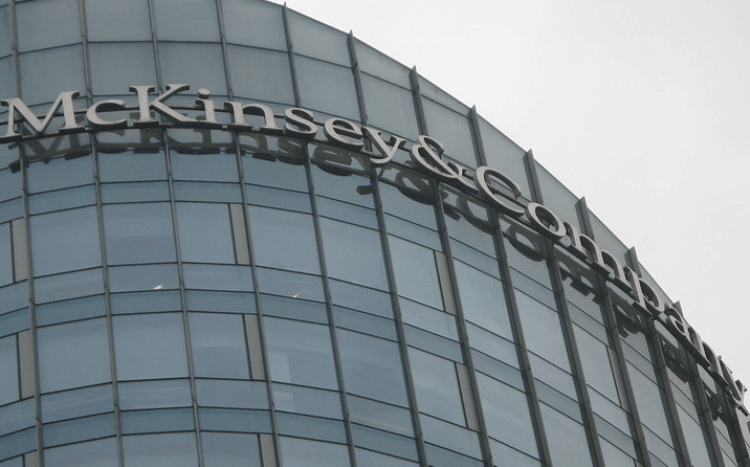
Bain, BCG, or McKinsey, the case study interview is a key part of the consulting interview process ©Philip McMaster
If you want to work in consulting, you’ll have to sit a case study interview. Here’s everything you need to know about the case study interview with tips from experts at Bain, BCG, and McKinsey

Mon Oct 11 2021
The consulting case study interview might just be one part of the application process, but it’s where you can stand out to your prospective employer and show you’ve got what it takes to crack cases day in day out.
Whether you have your eyes set on Bain, BCG, or McKinsey, or a smaller boutique consulting firm , here’s everything you need to know about the case study interview:
What is the consulting case study interview?
The consulting case study interview requires you to solve a simulated problem for a client. There are two types of case interview: The interviewer-led approach and the candidate-led approach.
“We use a client-like problem such as how to reduce a carbon footprint, how to make a workforce more diverse, how to leverage technology, or how to grow a customer base, and ask you three questions that simulate the kind of problem-solving our teams do in a client engagement,” says Amy Ross ( pictured) , senior expert in McKinsey’s global assessment team based in New York.
The three questions aren’t in a set order, but you can expect to focus on identifying the issues, then doing analysis based on information the team collects (that McKinsey provide), then coming up with insights and developing a conclusion. The McKinsey case study interview is consistent across global offices.
The interviewer-led approach of the McKinsey case interview means you’ll be guided through the process by your interviewer. However, there’s a caveat, explains Eugene Goh, the cofounder of HR tech startup, HireQuotient, who worked as a principal for BCG for more than eight years.
“They’re expecting a lot more detail and depth,” says Eugene, who’s recently cowritten From the Interviewer’s Seat: The Insider’s Guide for Aspiring Consultants , a book on the consulting interview.
Candidate-led approach
The candidate-led BCG case study interview will similarly present you with a real BCG case from previous client work. You’ll then be presented with the client’s challenges and have 45 minutes to walk your interviewer through your solution, rather than being led question by question. The BCG case study requires you to build your solution step by step.
“They’re looking for people who can structure their approach from end to end,” Eugene explains.
How can you stand out in your case study interview?
The case interview is supposed to simulate the problem-solving approach of the firm you’re interviewing with, which at McKinsey involves a lot of back-and-forth between team members, says Amy. You'll need to tackle case study interview questions that mimic a real consulting case.
“Candidates should listen to the client context and think about what it means, rather than repeat back everything the interviewer says.
“If the case covers an industry that is unfamiliar, candidates might consider whether there is an analogous industry they are familiar with and see if that helps them think of good ideas.
You should ask questions to clarify your understanding of the data and the issues at hand. Amy advises that you take a moment before speaking to collect your thoughts.
“Listen carefully, making sure you consider the information provided and the meaning behind the specific questions. You’ll stand out by putting the client front-and-center and by sharing interesting insights.”
The Bain case study, like the BCG case study, is often candidate-led. To stand out, your interviewers are looking for your analytical skills; the ability to break down challenging problems into parts you can tackle in a sequence; strong communication skills; the ability to simplify complex concepts; teamwork; and the ability to work successfully among others. That's according to Keith Bevans, head of global consultant recruitment at Bain & Company.
He explains that tackling a Bain case study is akin to playing in a jazz quartet. There’s no script, so you’re going to play a bit, and improvise. Improvisation is a key thing interviewers are looking for when you're solving a Bain case study.
“I think some students want to be perfect and play classical music and don’t want to share their insight or preliminary analysis until it’s right," says Keith. "The truth is I need them to share because what they share may not be perfect, but it’ll spark something in somebody else. I need students who are comfortable in that sort of environment.”
That's why MBA and business master's graduates are so well placed to enter consulting. They develop the skills that the Big Three consulting firms are looking for through live consulting projects, and constant group work that tests their ability to manage and lead diverse teams of peers to solve complex business problems.
Skills that will help you stand out
How to prepare for your case study interview?
The best thing you can do ahead of your consulting case study interview is prepare. Make sure you work with real case study interview examples.
Your business school will likely have a consulting club that offers consulting case study prep sessions, which will give you ample opportunity to work through mock case study interview questions. You may also have on hand a network of business school alumni who likely work in consulting, as well as professors—use them.
Amy from McKinsey recommends going to the website of the firm you’re applying to—McKinsey have case interview examples you can use to brush up on your casing. That way, you’ll know what to expect when you face your case study interview questions in real time.
She adds that there are many coaches and preparation services available to candidates, but the firm doesn’t expect you to use them.
“Frankly, we are worried there’s a lot of misleading advice out there so, again, we advise to consult our website, and feel free to ask your recruiter to arrange for you to meet one of our consultants who can be your interview coach,” she asserts.
Approach the case study interview like a McKinsey consultant
→ Make sure you understand the information provided.
→ Ask questions.
→ Collect yourself before diving into your answer.
→ Alongside logical ideas, challenge yourself to provide a few that are more ‘out there’, things you and a client team would want to test first. Sometimes, those bolder ideas are the best ones and often they really show McKinsey how you think.
Beware though, as you can see too many case study interview examples and overprepare. Angela Michalik, MBA recruiter at BCG, says that to avoid being overprepared focus on the quality not quantity of your prep.
Do one case, then get feedback, she says. At the end you should know where you were weak, and then in your next case go hard on the areas in which you’re weakest.
“I feel by doing that, students really improve,” she says. “You have to reflect on what you need to work on and practice.”
If you notice that you’re going straight into applying a framework to a case before you take the time to think, you might be overpreparing.
“Each client problem is different and deserves an initial approach that meets their needs. We realize interviews are filled with uncertainty, but the link between preparation and success in our process is not so strong,” Amy from McKinsey notes.
“Practice enough so you know what to expect, stay current with what’s new in the business world, and then bring curiosity and an open mind to your case interview.”
READ: Bain, BCG, McKinsey: How To Get Hired By The Big Three Consulting Firms
Granted, you need to be ready for ambiguity, something that can be hard to prepare for. But there’s a step-by-step approach Eugene says can help break away from the fixed framework approach:
- Define the objectives. What are you trying to do? Understand a bit about the client’s constraints. What’s the timeframe for the project, their budget, for example.
- Dive into the diagnosis. Why does the client have a problem?
- Option generation. What approaches could the client take?
- Option evaluation before coming to a decision
“It sounds generic but almost every problem, even in the real world, requires you to roughly go through those steps,” Eugene ( pictured ) says.
“That is a more helpful approach as it applies to all problems, therefore all cases.”
Case study interview prep is a key component of your overall application. But don’t stress. Focus on the quality of your preparation and lean on your business school network of MBA alumni in the consulting sector, as well as the resources available from your school’s consulting club.
Run through case interview examples from the firm’s you’re interested in and breathe before you approach a problem. That way, you’ll be best placed to ace your interview and launch your post-business school career as a consultant.
Where Do McKinsey, Bain, BCG Hire The Most MBAs?
Main image in this article is credited to Philip McMaster and used under this license
- MBB Consulting
You might like:

What Does a Financial Analyst Do? Key Skills + Responsibilities

Sustainability Jobs | What Careers In Sustainability Are Available Today?

20 Good Company Culture Examples From Google, Uber & More

IMAGES
VIDEO
COMMENTS
During your interview, you should share details about the challenges, goals, and actions you took to create change. If you are interested in McKinsey careers beyond consulting, you can learn more about the assessment process for our internal roles here. *Please note, not all interviews at McKinsey will require an expertise interview or follow ...
At McKinsey, we strive to create an unrivalled environment for exceptional people. During many of our interviews, you will learn more about what this value means in practice at McKinsey. Your assessor may share details of how McKinsey is a non-hierarchical, diverse, inclusive meritocracy. They may touch on our formal and informal apprenticeship and mentor programs.
McKinsey has been asked to investigate and assess the possibility of using the Diconsa network to provide a set of basic financial services to supplement the limited number of state-owned bank branches. This would start with dispensing benefit payments and would gradually grow to include savings accounts, bill payments, insurance, loans, and ...
Undaunted by global disruption, a logistics company embraces bold transformation. December 2, 2022 -. ECU Worldwide, one of the largest less-than-container-load shipping companies in the world, chose to innovate during the COVID-19 pandemic, working with McKinsey to become tech enabled and revamp its organizational structure.
Courtesy of McKinsey & Company. The latest salaries report from Management Consulted, a consulting careers resource website, showed that McKinsey's hires with MBAs and PhDs make a base salary of ...
Situation description. Beautify is a global prestige cosmetics company that sells its products mainly inside high-end department stores such as Harrods and Shanghai No. 1. It also has a presence online with specialty retailers like Sephora. Beautify produces a number of makeup, fragrance, and skin care products sold under several different brands.
Situation description. Talbot Trucks is a Europe-based private truck OEM. It produces and sells trucks all over the world. Talbot Trucks is considered a leader in quality manufacturing. Its primary customer base includes large trucking companies that own thousands of trucks and owner-operators, which are smaller customers that own fewer trucks.
Building on the McKinsey Global Institute's body of work on automation, AI, and the future of work, we extend our models to consider where work is performed. 1 Our analysis finds that the potential for remote work is highly concentrated among highly skilled, highly educated workers in a handful of industries, occupations, and geographies.
Learn what to expect during the case study interview. Hear what some recent hires did - and did not - do to prepare.
Preparation is key when it comes to acing a McKinsey case interview. Here are some tips to help you succeed: Be well-prepared: Research the firm and the industry you are interested in and practice case studies. Be analytical: Use a structured framework to analyze the case and identify the key issues.
Check out our YouTube channel with much more additional content on the consulting industry including: A sample case interview including a detailed solution & interviewer feedback. An 8 video series on how to best prepare for your case interview. Many more insights on the consulting industry. Sign up now and. try a case for free!
Last Updated on March 27, 2024. The McKinsey case interview, also called the Problem-Solving Interview by the firm, is a crucial and defining element of the consulting recruitment process for one of the world's most prestigious management consulting firms. This unique type of interview assesses a candidate's analytical, problem-solving, and ...
In a McKinsey case interview, you will be presented with a case study about a company facing an issue, and you'll be expected to analyse the situation and develop a recommendation. For example, you might get a case about a fast food chain with declining profits, and you'll need to take steps to create a recommended solution. Here's an example ...
How to answer McKinsey interview questions. Learning how to answer the interview questions can show that you've done preparations and made a strong first impression. Follow these steps: 1. Practice case studies. The case interviews are an integral portion of the overall interview process at McKinsey.
McKinsey Case Interview Walkthrough. McKinsey Case Interviews are some of the toughest with the most expectation for accurate case math and solid case structure. This case is led by Jenny Rae, ex-Bain consultant, and the candidate, Lisa, is an ex-McKinsey consultant. Read how Lisa goes through all the information given, and then creates a ...
Updated November 17, 2023. This McKinsey case interview example features a real consulting candidate attempting to solve a tough McKinsey case. Jenny Rae (ex-Bain) is the interviewer, and the interviewee is MBA candidate Simon Popkin. This is a McKinsey-style Market Study case example similar to what you'd see in a second-round interview.
As you prepare for your interview, if you'd like to learn more about the type of work and the career path at McKinsey, check out our in-depth blog post about McKinsey Careers. 2. Case structure and examples ↑ 2.1 McKinsey case study structure ↑. During your McKinsey interviews, you will be presented with a case study about a company facing ...
McKinsey interviewers split their interview time between the case and PEI in every interview. 5. McKinsey Looks For Personal Impact And Entrepreneurial Drive In Candidates. This is in addition to the structured problem solving and leadership skills that McKinsey, as well as other top consulting firms, look for in candidates. 6.
Digital Case Study Preparation: A New Trend in Consulting Interviews. The consulting world is always on the move, especially with tech changing how businesses work. This shift includes how interviews are done too. Nowadays, digital case study prep is a big deal, totally changing how aspiring consultants get ready for tough interviews at top firms.
One of the best ways to prepare for case interviews at firms like McKinsey, BCG, or Bain, is by studying case interview examples.. There are a lot of free sample cases out there, but it's really hard to know where to start. So in this article, we have listed all the best free case examples available, in one place.
This is an ultimate guide to preparing for a McKinsey case interview. Learn what to expect from each round and prepare with free resources and practice tests.
McKinsey Case Interview. Updated November 17, 2023. The McKinsey case interview is different than the case interview you will receive at BCG, Bain, or another top consulting firm. This means that you must prepare strategically. While best practices are consistent across different case styles, at some point, simply preparing for general case ...
The McKinsey case study interview is consistent across global offices. The interviewer-led approach of the McKinsey case interview means you'll be guided through the process by your interviewer. However, there's a caveat, explains Eugene Goh, the cofounder of HR tech startup, HireQuotient, who worked as a principal for BCG for more than ...